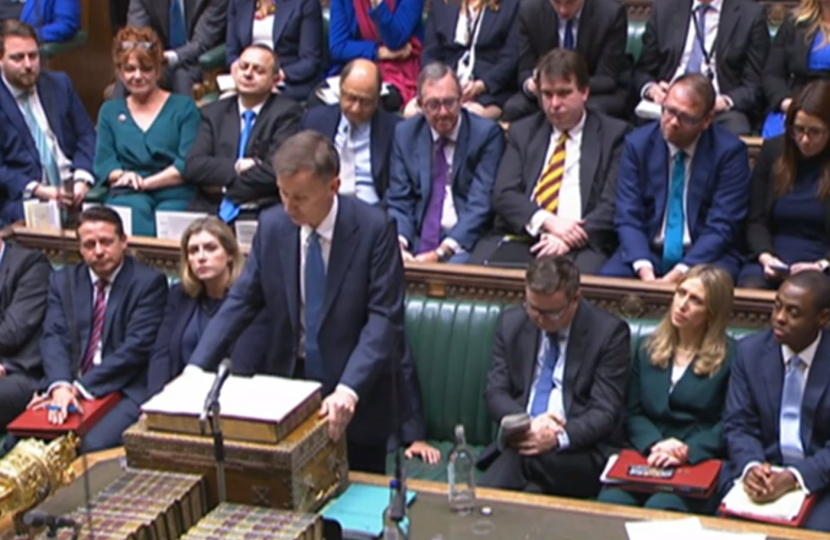
In January 2023, Prime Minister Rishi Sunak laid out a transformative vision for the UK that outlined five priorities, three of which were economic: halving inflation, growing the economy, and reducing debt. It was an honour, then, to be sat on the front bench as the Chancellor, Jeremy Hunt honoured these priorities with the announcement of 110 measures during the Autumn Statement for Growth.
A key focus of the Autumn Statement is cutting back on taxes for working people, with a reduction in the main rate of National Insurance contributions of 2p in the pound and reductions and simplification for National insurance for the self-employed. For almost 2.5 million workers in the West Midlands, this translates to a tax cut of more than £320, ensuring that hard work is properly rewarded. Moreover, the boost to the National Living Wage to £11.44 per hour will benefit 280,000 workers in the West Midlands, a significant step towards eradicating low pay.
There were also many measures to support businesses including making the ‘full expensing’ policy permanent. This is a tax relief measure for businesses that effectively takes up to 25 pence in the pound off the cost of investment in plant and machinery. Further measures were also announced on tax relief on research and development. Together the measures announced in the Autumn Statement will attract £20 billion more business investment a year in the next decade which will help increase the country’s long-term productivity.
Further support for businesses was also provided in the Autumn Statement in the form of extending the 75% business rate reduction for retail, hospitality, and leisure businesses by another year and a freeze to the small business multiplier. This translates to tangible support for local businesses, with the average shop saving £1,650 and over 20,300 businesses in the West Midlands will benefit from the extension of the RHL Relief.
The Autumn Statement also introduced a West Midlands Investment Zone, targeting Advanced Manufacturing and leveraging around £2 billion in private investment. This initiative will generate 30,000 jobs over the next decade, providing a substantial boost to the local economy. The extension of Investment Zone status from five to ten years, coupled with the doubling of funding to £160 million per Investment Zone, underscores our commitment to sustained economic growth in the region.
Beyond these measures, the Autumn Statement tackles broader challenges, including inflation, pensions, support for the vulnerable, and welfare reform to enhance employment opportunities. Collectively, these initiatives contribute to constructing a more resilient and prosperous economy.
The commitment to boosting pensions is a testament to the government's dedication to supporting the well-being of our elderly population. In the Autumn Statement, the Chancellor announced an 8.5 per cent increase in pensions, in line with the Triple Lock policy.
Supporting the most vulnerable is a moral imperative, and the Autumn Statement addresses this in multiple ways, including by increasing welfare payments by 6.7% for millions of people receiving benefits and increasing the Local Housing Allowance rates. This move, benefitting 1.6 million struggling families, demonstrates a commitment to alleviating the financial burden on those facing housing challenges.
Lastly, reforming welfare to get more people into work is a strategic focus of the Autumn Statement, with measures aimed at tackling long-term unemployment and encouraging active participation in the workforce.
The Autumn Statement paves the way for a resilient and prosperous future, ensuring that the benefits of economic growth reach individuals and regions right across the UK.
